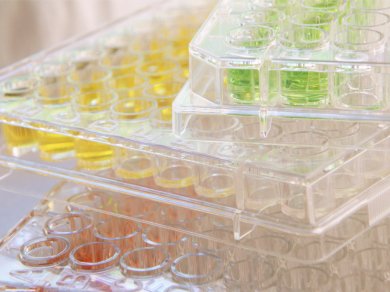The anaerobic oxidation of formate to CO2 is not considered to be energetic enough to support microorganism growth (ΔG is between −8 and −20 kJ mol−1 under physiological conditions).
Jung-Hyun Lee and Sung Gyun Kang, University of Science and Technology, Korea, have investigated the growth of Thermococcus onnurineus metabolizing formate. Despite such metabolism only allowing the production of less than 1 mol ATP, the oxidation was shown to support cell growth. The cells grew efficiently solely by metabolism of formate and produced H2 and CO2, in the form of bicarbonate. No growth or H2 production was detected in the control culture lacking formate.
ATP content was monitored and synthesis of additional ATP was observed on addition of formate to cell suspensions in the absence of any other energy source.
- Formate-driven growth coupled with H2 production
Y. J. Kim, H. S. Lee, E. S. Kim, S. S. Bae, J. K. Lim et al.,
Nature 2010, 467, 352–355.
DOI: 10.1038/nature09375




